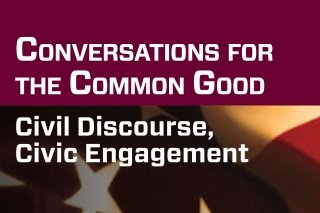Conversations for the Common Good: "Librarians Challenged and Books Banned"
- -
- Livecast at: wvia.org/conversations
Categories:
“Librarians Challenged and Books Banned: What Can be Read in Public Libraries? Who Decides?”

Livecast at www.wvia.org/conversations
Panelists will include:
- Russell Rickford, Associate Professor of History, Cornell University
Dr. Rickford is a specialist in African American social and political history. (taking part via Zoom) - Susan Bartoletti, Author, specialist in children’s literature, Scranton, PA
Dr. Bartoletti not only has experience writing on controversial topics in U.S. and world history, but has also been the target of book banning activists. (taking part in person) - Lydia Kegler, Library Director, Bloomsburg Public Library
Dr. Kegler is sensitive to attempts to restrict reading materials in public libraries, and recently oversaw the creation of collection development policies designed to value public complaints, while protecting institutional commitment to intellectual freedom. (taking part in person)
The discussion will turn on a couple of basic questions: how are contested narratives about the history of our nation—including racial inequality, the ongoing struggle to live up to the ideals formulated in the Constitution, L.G.B.T.Q rights, and other controversial topics—affecting reading and readership in public libraries today? How do individuals and groups seeking to ban books operate in the nation at large, and in Pennsylvania specifically? How are librarians and authors reacting to book banning initiatives? What role do professional scholars in history and literature have to play amid this controversy? Are political leaders part of the solution, or part of the problem?
Here are some questions we anticipate discussing: What are the most hotly contested narratives in U.S. history and in American culture, in your (panelists’) view? What experiences have led you to identify those narratives in particular? Are those the same narratives that seem to be challenged in the public library setting, and thus are targets of book banning and challenges to librarian acquisition choices? What has been your experience of attempts to ban books from readership, and thus from public discussion, in the last several years? How have those challenges affected your work? How do librarians and library directors navigate the sometimes competing demands of American Library Association statements on censorship, and critics of public library acquisitions in the community? How, in particular, have librarians and authors, especially those who write for children and who collect those works for public libraries, been affected by controversies over “proper” American narratives? What do you think university faculty and other experts in history and literature can do to help encourage dialogue about contested inclusive narratives about history, literature, and culture? What strategies for resolution do you find promising?
